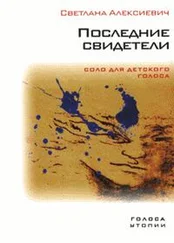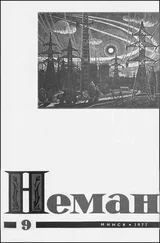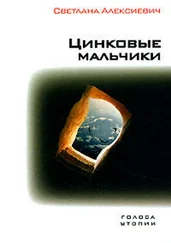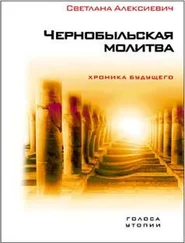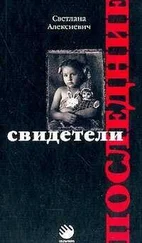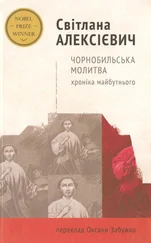Светлана Алексиевич - Chernobyl Prayer - A Chronicle of the Future
Здесь есть возможность читать онлайн «Светлана Алексиевич - Chernobyl Prayer - A Chronicle of the Future» весь текст электронной книги совершенно бесплатно (целиком полную версию без сокращений). В некоторых случаях можно слушать аудио, скачать через торрент в формате fb2 и присутствует краткое содержание. Год выпуска: 2016, ISBN: 2016, Издательство: Penguin Books Ltd, Жанр: Биографии и Мемуары, на английском языке. Описание произведения, (предисловие) а так же отзывы посетителей доступны на портале библиотеки ЛибКат.
- Название:Chernobyl Prayer: A Chronicle of the Future
- Автор:
- Издательство:Penguin Books Ltd
- Жанр:
- Год:2016
- ISBN:9780241270547
- Рейтинг книги:3 / 5. Голосов: 1
-
Избранное:Добавить в избранное
- Отзывы:
-
Ваша оценка:
- 60
- 1
- 2
- 3
- 4
- 5
Chernobyl Prayer: A Chronicle of the Future: краткое содержание, описание и аннотация
Предлагаем к чтению аннотацию, описание, краткое содержание или предисловие (зависит от того, что написал сам автор книги «Chernobyl Prayer: A Chronicle of the Future»). Если вы не нашли необходимую информацию о книге — напишите в комментариях, мы постараемся отыскать её.
Chernobyl Prayer: A Chronicle of the Future — читать онлайн бесплатно полную книгу (весь текст) целиком
Ниже представлен текст книги, разбитый по страницам. Система сохранения места последней прочитанной страницы, позволяет с удобством читать онлайн бесплатно книгу «Chernobyl Prayer: A Chronicle of the Future», без необходимости каждый раз заново искать на чём Вы остановились. Поставьте закладку, и сможете в любой момент перейти на страницу, на которой закончили чтение.
Интервал:
Закладка:
Everything has changed, except us.
It takes at least fifty years for an event to become history, but here we have to follow the trail while it is still fresh.
The Zone. It is a world of its own. First it was invented by science-fiction authors, then literature gave way to reality. We cannot go on believing, like characters in a Chekhov play, that in a hundred years’ time mankind will be thriving. Life will be beautiful! We have lost that future. A hundred years on, we have had Stalin’s Gulags and Auschwitz. Chernobyl. And September 11 in New York. It is hard to comprehend how all this could happen within one generation, within the lifetime of my father, for example, who is now eighty-three years old. Yet he survived it!
What lingers most in my memory of Chernobyl is life afterwards: the possessions without owners, the landscapes without people. The roads going nowhere, the cables leading nowhere. You find yourself wondering just what this is: the past or the future.
It sometimes felt to me as if I was recording the future.

1
Land of the Dead
Monologue on why people remember
I’ve got a question too. Something I can’t really answer myself.
You’ve decided to write about it. And I don’t really want people to know all those things about me, what I went through there. See, I feel the urge to open up, to unburden myself, but then I feel like I’m baring my soul, and that’s something I don’t want to do.
Remember War and Peace ? After the war, Pierre Bezukhov is so shaken that he feels he and the whole world can never be the same. But, soon enough, he catches himself slipping back into his old ways: having a go at the coachman, grumbling and growling. So why do people remember things? Is it to get at the truth? For the sake of justice? To let go and forget? Because they realize they were part of some monumental event? Or are they taking refuge in the past? And then there’s the fact that memory is fragile, fleeting, it isn’t precise facts, it’s your conjecture about your own self. It’s just emotions, not proper knowledge.
I got all worked up, rummaged through my memory and it came back.
For me, my most terrible time was in childhood. It was the war.
I remember us boys playing ‘Mummies and Daddies’: we used to undress the tiny children and lay them on top of each other. They were the first children born after the war. The whole village knew what their first words were, which of them had started walking, because children got forgotten in the war. We were waiting for new life to appear. ‘Mummies and Daddies’ we called that game. We wanted to see new life appearing. We were only eight or ten years old ourselves.
In the bushes by the river, I saw a woman killing herself. She took a brick and was bashing herself on the head. She was pregnant by a Nazi collaborator the whole village hated. When I was still a boy, I saw kittens being born, helped my mother pull the calf out of a cow, took our sow for mating with a boar. I remember … remember when they brought my father home dead. He had a sweater on that Mother had knitted him. He must have been shot by a machine gun or assault rifle and some bloody lumps were bulging out from the sweater. He lay on our only bed, we had nowhere else to put him. Then we buried him in front of the house. The earth in his grave wasn’t light and soft, it was heavy clay from the beetroot patch. There was fighting all around us. Dead horses and people lying in the streets.
For me, those memories are so off limits that I’ve never spoken aloud about them.
Back then, I looked at death the same way I looked at birth. It brought up pretty much the same feelings as when the calf came out of the cow. Or the kittens were being born. Or when the woman was killing herself in the bushes. Somehow it all seemed the same thing, no different. Birth and death.
I remember from my childhood the smell in the house when a pig was slaughtered. You’ve barely nudged me, but I’m sliding back into that nightmare, that horror. Falling headlong …
Something else I remember is the women taking us little ones to the bathhouse. Many of them, my mother too, had their wombs slipping out of place (we knew all about it), and they trussed themselves up with rags. I saw it. Their wombs were slipping out from all the hard labour. There were no men: they were all being wiped out at the front or in partisan fighting. There were no horses either, so the women drew the ploughs themselves. They ploughed the vegetable plots and the collective-farm fields. When I grew up and had intercourse with women, I remembered what I saw in the bathhouse.
I wanted to forget. Forget everything. And I was forgetting. I thought the worst was behind me, the war years, and that now I was safe. Protected by my knowledge, by what I’d gone through there. But …
I went into the Chernobyl Zone. Been there many times now. It was there I realized I was helpless. And I’m falling apart because of this helplessness. Because I can no longer recognize the world. Everything has changed. Even evil is different. The past can’t protect me any more. It can’t comfort me, can’t offer me any answers. It used to have answers. ( He becomes pensive .)
Why do people remember the past? Well, I’ve spoken to you now, put it into words, made sense of something. I don’t feel quite so isolated now. But how is it for other people?
Pyotr S., psychologist
Monologue on how we can talk with both the living and the dead
A wolf came into the yard in the night. I looked out the window and it was standing there, eyes blazing. Like headlamps.
I’ve grown used to it all. Seven years I’ve been living alone. It’s seven years since everybody left. At night, sometimes I’ll sit till dawn, just thinking and thinking. Spent the whole of last night hunched up on the bed, then went out to see the sun. What can I tell you? The only righteous thing on the face of the earth is death. No one has ever bribed their way out of that. The earth takes us all: the good, the evil and the sinners. And that’s all the justice you’ll find in this world. I’ve slogged my guts out honestly all my life, lived with a clear conscience, but not much justice has come my way. God must have been doling out everyone’s share, and when my turn came the pot was empty. For the young, there’s a chance death might come knocking, but for us old ones it’s a sure thing. We’re none of us immortal, not even the tsars or merchants. At first, I was waiting for everyone, thinking they’d all be back. They weren’t leaving forever, it was just for a while. But now I’m waiting for death. Dying might not be difficult, but it’s scary. There’s no church, and the priest doesn’t come to these parts. There’s nowhere to take my sins.
The first time they told us we’d got radiation, we thought it was some sort of disease, anyone who caught it would drop dead. No, they said, it’s something that lies on the ground and gets right inside the ground, but can’t be seen. The animals can probably see it and hear it, but people can’t. But that’s not true! I saw it. This caesium was lying in my vegetable plot until it got wet in the rain. Sort of inky blue, it was. It lay there shimmering in these little lumps. I’d just run back from the collective-farm field and gone to my vegetable plot. And there it was, this blue lump, and a couple of hundred metres away, there was another, as big as the scarf on my head. I yelled to my neighbour and the other women and we all ran around looking for them. Checked all the vegetable plots and the nearby field, a good two hectares. We found maybe four large pieces. One was red. The next day, it was pouring with rain, right from early in the morning. By lunchtime, they were gone. The police came, and there was nothing to show them. We could only describe it all. This big, they were. ( She measures with her hands. ) Like my headscarf. Dark blue and red ones.
Читать дальшеИнтервал:
Закладка:
Похожие книги на «Chernobyl Prayer: A Chronicle of the Future»
Представляем Вашему вниманию похожие книги на «Chernobyl Prayer: A Chronicle of the Future» списком для выбора. Мы отобрали схожую по названию и смыслу литературу в надежде предоставить читателям больше вариантов отыскать новые, интересные, ещё непрочитанные произведения.
Обсуждение, отзывы о книге «Chernobyl Prayer: A Chronicle of the Future» и просто собственные мнения читателей. Оставьте ваши комментарии, напишите, что Вы думаете о произведении, его смысле или главных героях. Укажите что конкретно понравилось, а что нет, и почему Вы так считаете.

